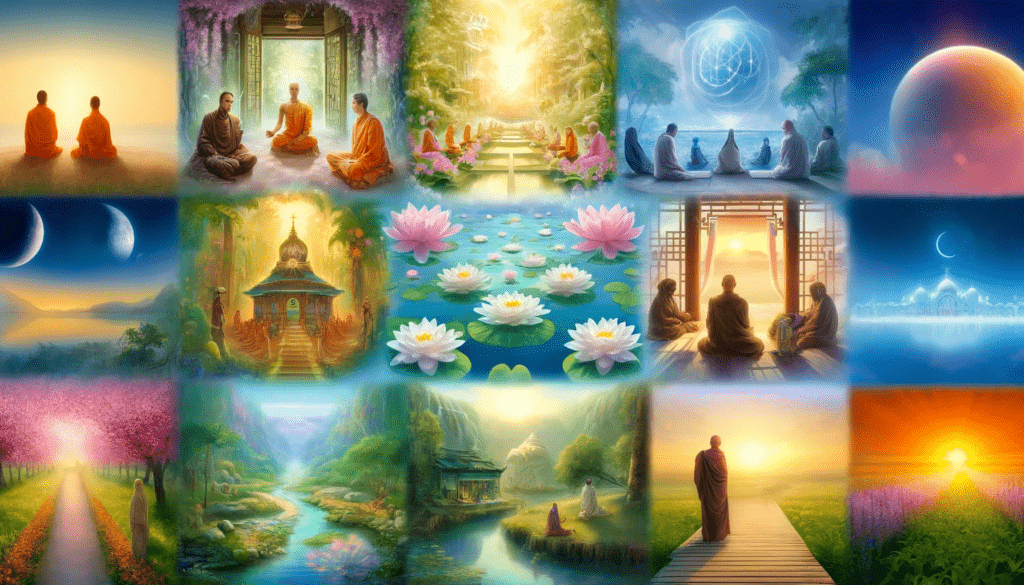
Joseph Campbell, the popular writer about comparative religion and mythology, once argued that bliss is at the universal core of religion, and that we could do nothing better than “follow our bliss.”
In Hinduism, the concept of “Ananda” (bliss) is central to the spiritual journey, with the Upanishads describing Ananda as our true nature but hidden by Maya. Christianity, too, holds the promise of bliss at its core, exemplified by Jesus Christ’s teachings about the Kingdom of Heaven and the notion of eternal life for the righteous. The parallel concept in Islam is known as “Jannah,” or Paradise. Other religions, like Baha’i and Sikhism also teach that bliss comes from devotion to God.
The Eightfold Path of Buddhism, which guides followers towards the cessation of suffering, includes practices that lead to a state of blissful inner peace. And other religious traditions, like Taoism and Native American spirituality, which emphasize the beauty and wisdom of the natural world, find bliss through living harmoniously with the Earth.
Buddhism
“Health is the greatest gift, contentment is the greatest wealth, a trusted friend is the best relative, Nirvana is the greatest bliss.”
– The Buddha
Hinduism
“Meditate upon the Knowledge and Bliss Eternal, and you will also have bliss. The Bliss indeed is eternal, only it is covered and obscured by ignorance. The less your attachment is towards the senses, the more will be your love towards God.”
– Sri Ramakrishna, Hindu saint
“Samadhi is the state of bliss which is experienced by a live fish which, being kept out of water for some time, is again put into it.”
– Sri Ramakrishna, Hindu saint
Taoism
“Fish enjoy water, humans enjoy the Tao. Enjoying water, the fish stick to the pond and find all they need to survive there. Enjoying the Tao, people do nothing and their lives are fulfilled.”
– The Book of Chuang Tzu, Taoist text
Islam
“Allah hath promised to Believers, men and women, gardens under which rivers flow, to dwell therein, and beautiful mansions in gardens of everlasting bliss. But the greatest bliss is the good pleasure of Allah: that is the supreme felicity.”
– The Qur’an (9:72), Islamic scripture
Sikhism
“Alone let him constantly meditate in solitude on that which is salutary for his soul, for he who meditates in solitude attains supreme bliss.”
– Guru Nanak, Sikh founding prophet
Christianity
“[Mortals] say of some temporal suffering, “No future bliss can make up for it,” not knowing Heaven, once attained, will work backwards and turn even that agony into a glory.”
– CS Lewis, novelist and Christian theologian
Baha’i
“A man living with his thoughts in this Kingdom knows perpetual joy. The ills all flesh is heir to do not pass him by, but they only touch the surface of his life, the depths are calm and serene.”
— ‘Abdu’l-Bahá, Baha’i leader


